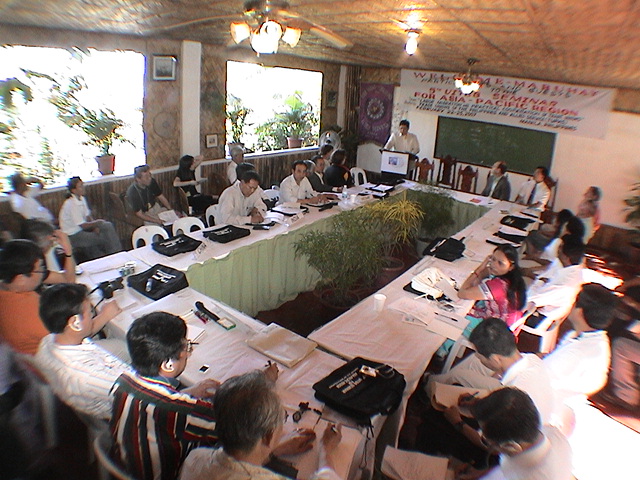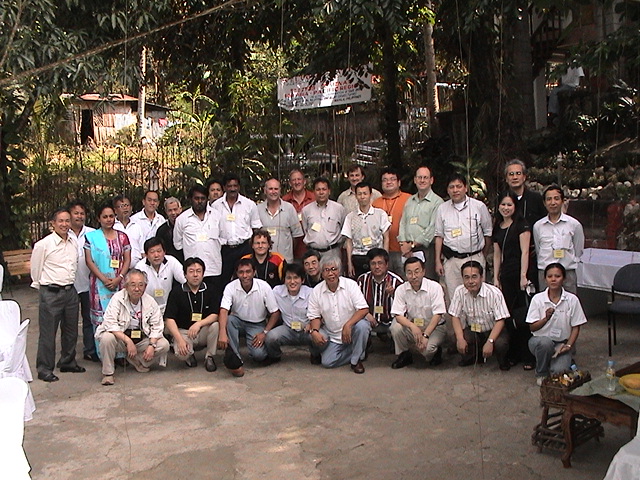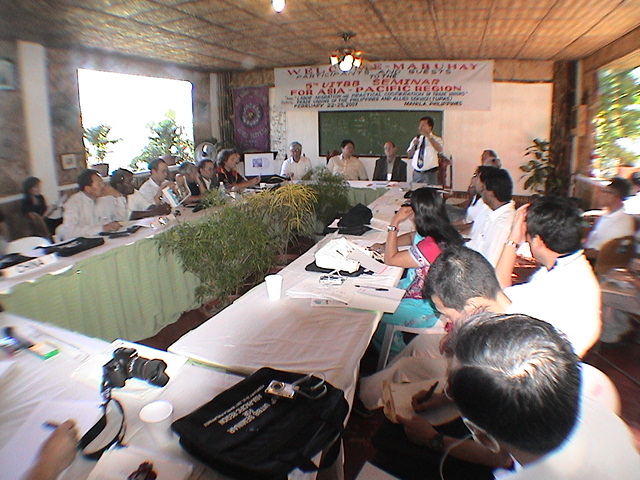RESOLUTION OF PARTICIPANTS AT THE 5th ASIA/PACIFIC SEMINAR OF BUILDING AND BUILDING MATERIALS UNIONS, FEBRUARY 24 2007, MANILA
This meeting of unions from the Asia/Pacific region consisting of delegates from India, Mauritius, Bangladesh, Vietnam, China, Japan, Philippines, New Zealand and Australia, having met in Manila from 23-25 February 2007, resolves as follows:
- We believe that the momentum built up through our series of regional meetings of construction and construction related unions in the Asia/Pacific region has been valuable for our work as trade unionists and that the process should continue.
- We ask that the UITBB leadership work to establish a 6th meeting of this seminar process and that the meeting should take place within a 12-18 month time frame. We suggest that discussions take place with unions in a range of countries including China, Indonesia, Bangladesh, Pakistan and New Zealand in order to establish a host country for our next meeting.
- Our meeting in Manila has had a special focus on the issue of labour migration (as decided by our Tokyo meeting) and it is important that we continue our work around this key issue. We resolve to take the following practical steps to assist migrant workers who are being abused and exploited:
- a) We will seek to organise a day of protest in key cities throughout the Asia/Pacific region to draw attention to the problems faced by migrant workers particularly guest workers, in the construction industry in our region. These protests should be co-ordinated to take place at the same time before the end of 2007. The UITBB office should frame a list of demands that can be submitted to governments on the day of our protest;
b) Having established that the level of knowledge gained by migrant workers of their rights before they commence work in a host country has an important bearing on the possibility of exploitation occurring, we resolve to commission an academic study of the pre-departure processes that are followed in the sending countries of our region. We resolve to write to the ILO and seek funding to expedite the necessary research;
c) We commit ourselves to strengthening bi-lateral ties between the unions of the region so that when instances of exploitation of migrant workers are discovered in a receiving country the union seeking to address the issue can rapidly communicate with kindred unions from the sending country, seeking information and assistance;
d) We resolve that we as individual unions and the UITBB should continue to press this issue with the ILO believing that much more has to be done to implement the well meaning but non-binding provisions of the ILO Multi-lateral Framework on Labour Migration that was adopted in 2005;
e) We resolve to press Governments of the region who have not ratified the two ILO conventions on labour migration to do so along with the provisions of the Multi-lateral Framework as a matter of urgency;
f) We resolve to press governments who have ratified the ILO instruments but do not respect them in practice;
g) We resolve to share information with each other and the UITBB head office so that we will continue to gather knowledge on this issue;
h) We ask that the issue of migrant labour feature prominently on the agenda of our next meeting.
5. We call upon the UITBB to publish a special edition of the UITBB Bulletin dealing with our 5th Asia/Pacific Seminar in Manila.
6. We call upon the UITBB to place the papers presented at this seminar on the UITBB website as a matter of urgency.
7. As a group of construction and construction related unions we resolve to give special emphasis in our day to day work to the critical safety and occupational diseases issues discussed at this meeting. We resolve to campaign vigorously around the asbestos issue and the causes of other prevalent diseases for construction workers such as silicosis, pneumoconiosis and the like.
8. We ask the UITBB to forward a copy of our final resolution of the 5th seminar together with the papers presented to ACTRAV at the ILO.
9. We place on record our gratitude and thanks to TUPAS and the many comrades from TUPAS who have helped make our stay in the Philippines enjoyable and our seminar rewarding.
So we decided.




